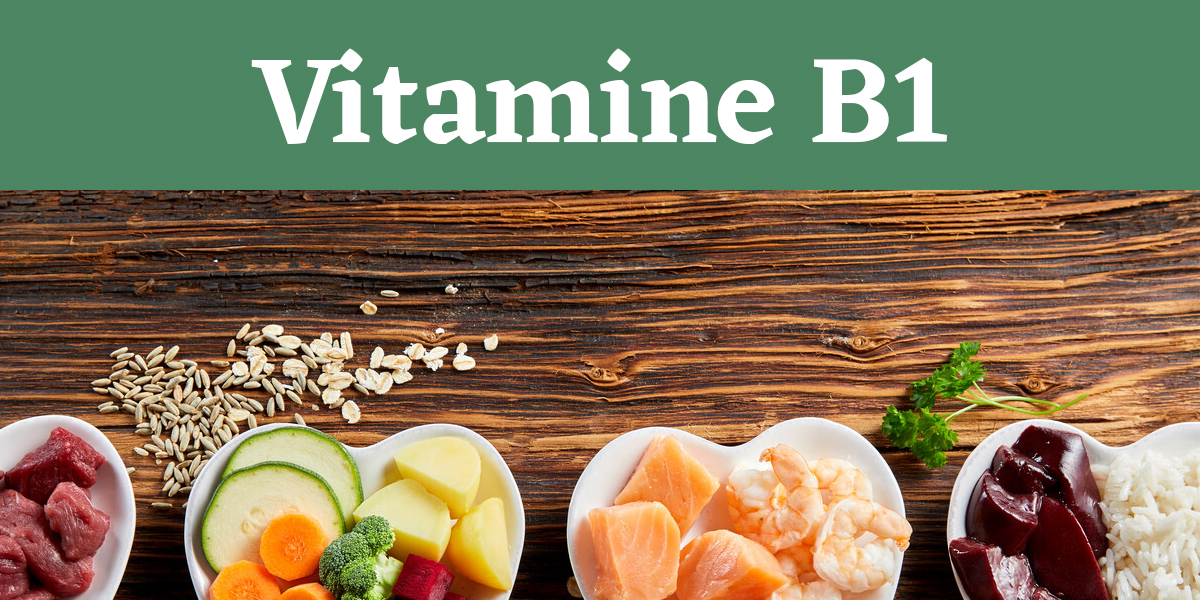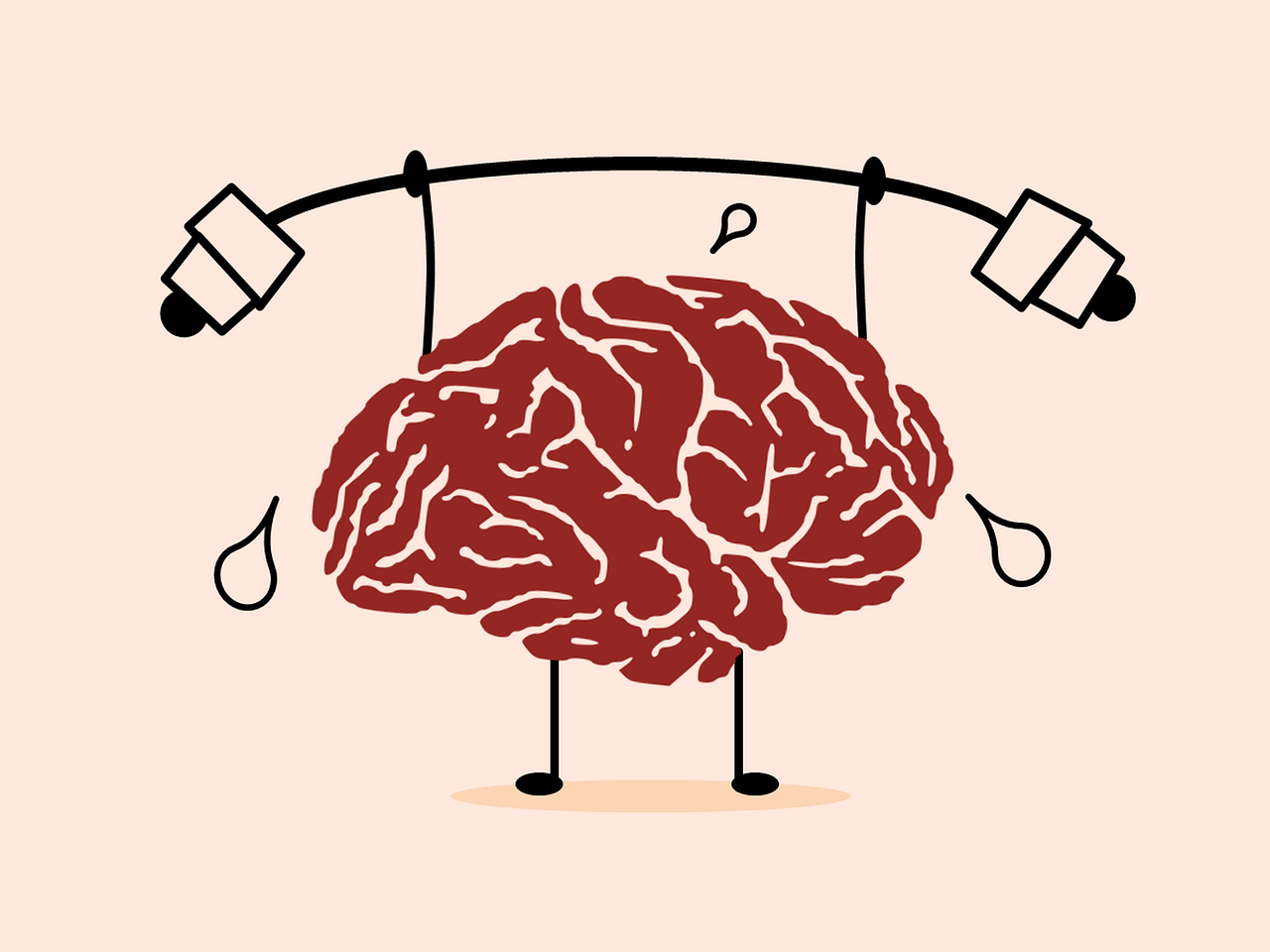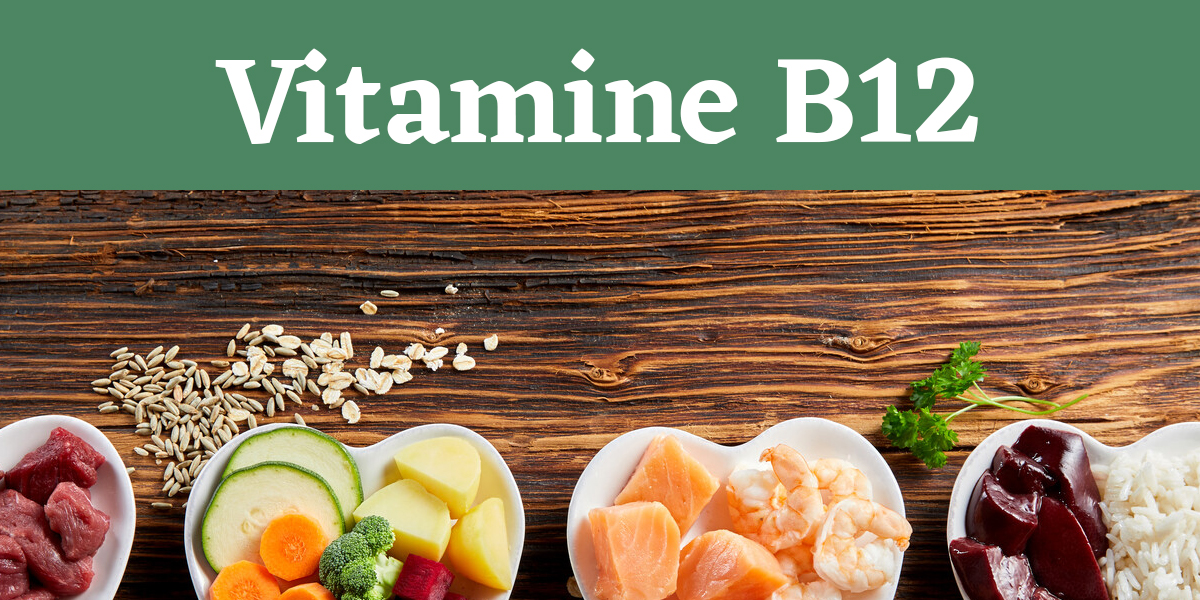Vitamin B1 (thiamine)

Vitamin B1, also called thiamine, is a water-soluble vitamin that belongs to the vitamin B complex. Vitamin B1 is not stored in the body and must be made sufficiently available on a daily basis through a high-quality diet or through supplementation.
Vitamin B1 is involved in many processes in the body. It has an essential role in the combustion of glucose. If there is not enough vitamin B1 available, this process does not run optimally. As a result, the cells do not get enough energy from the supplied glucose molecules. As a result, all kinds of different physical and psychological complaints can arise.
The brain cells in particular are entirely dependent on glucose supplied by the blood. People can then suffer from low energy, irritability, hypersensitivity to sounds and fatigue.
Vitamin B1 is also important for the proper functioning of the nervous system. It plays a role in the transmission of nerve impulses to the muscles. Proper transmission of signals is necessary for the coordination of all body movements. The body uses the substance acetylcholine for this and can only be produced with the help of vitamin B1. If there is such a shortage of vitamin B1, this will lead to an acetylcholine deficiency, which can lead to beriberi. This is a disease that can cause paralysis.

Other functions of vitamin B1 are the production of red blood cells, it activates thyroid function, the production of insulin and supports the production of stomach acid. In addition, it is part of the coenzyme A that is part of our energy production. Vitamin B1 also acts as a cofactor in the conversion of the amino acid tryptophan into vitamin B3.
The deficiency of vitamin B1 can be caused by too much carbohydrates in the form of glucose. But stress can also be a cause of a vitamin B1 deficiency. Some consequences of a deficiency of vitamin B1 can be hyperactivity, flight behavior, jumping from one thing to another, memory disorders, lack of appetite, shortness of breath, tingling of feet and hands, insomnia, constipation, depression, apathy and anxiety.
Vitamin B1 works much better in combination with vitamin B2 and vitamin B6. The absorption of vitamin B1 is affected by alcohol, coffee and refined sugars. Alcoholics and people who consume a lot of sugars often have a vitamin B1 deficiency. In addition, vitamin B1 cannot withstand heating and the preservative sulfite.
Vitamin B1 is mainly found in liver, shrimp, salmon, oats, legumes, dairy products, nuts, potatoes and various herbs.



